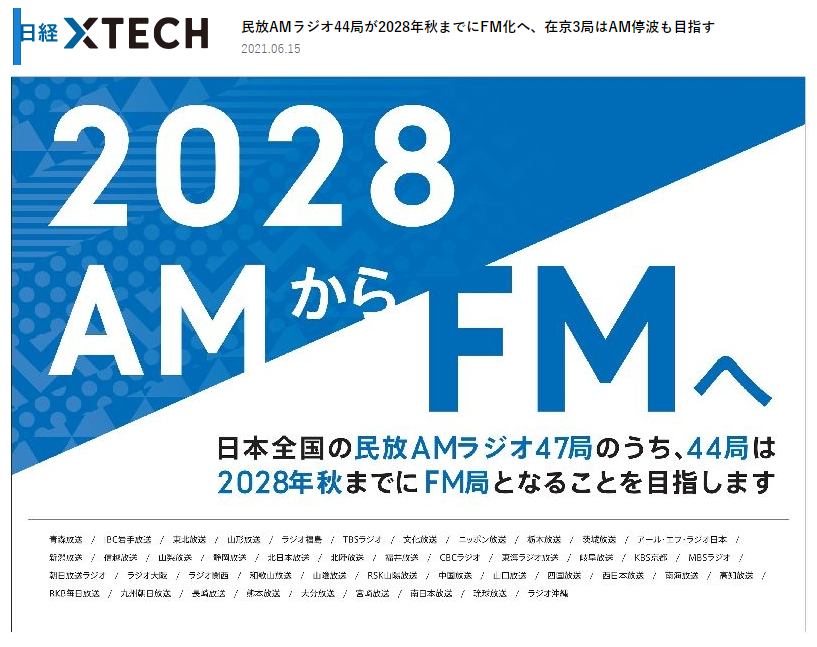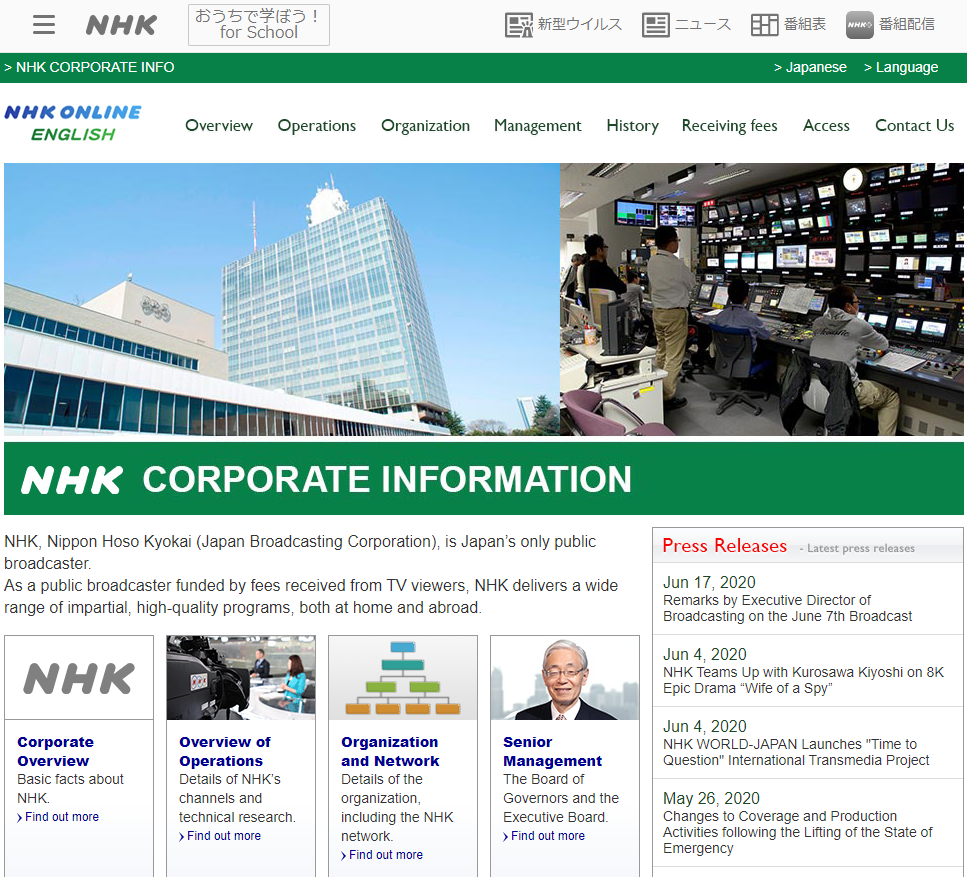
Source
Within six years, more than 90% of Japan’s commercial stations (44 out of 47) will leave medium-wave to switch to frequency modulation. In September 2028, only three stations will remain active in northern Japans Hokkaido and Akita Prefecture. But the airwaves will begin to empty from next year: the first channels will be turned off in the fall of 2023. The advertising crisis has prompted broadcasters to ask the communications ministry to migrate to FM to reduce operating costs: AM systems are energy-intensive, maintenance expenses are high, and antennas at least 100 meters high are needed to transmit. The last to leave the airwaves will be three Tokyo-based broadcasters-TBS Radio, Nippon Cultural Broadcasting and Nippon Broadcasting System-and some will continue to keep AM transmitters on after 2028. In Japan, the FM band goes from 76 to 95 MHz because the higher channels, before the digital switchover, were occupied by television.
Written by Fabrizio Carnevalini

